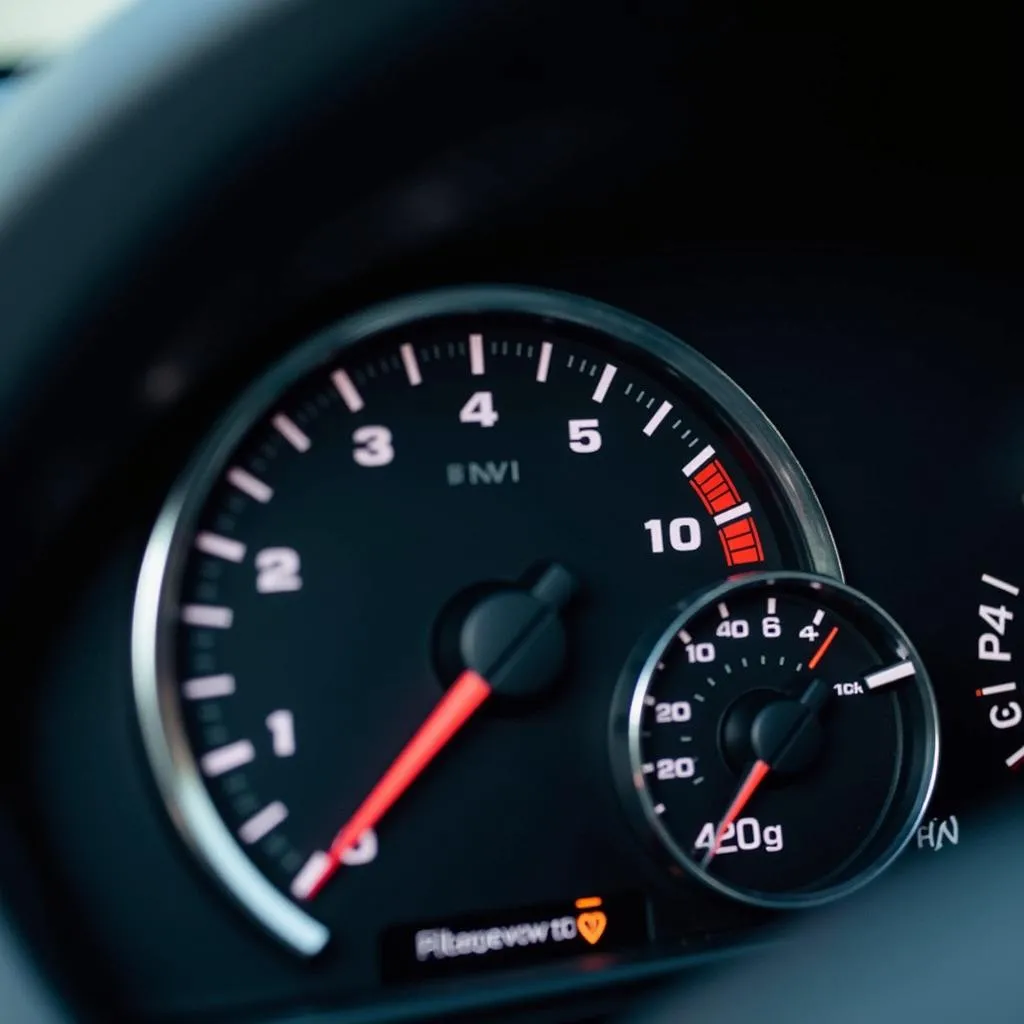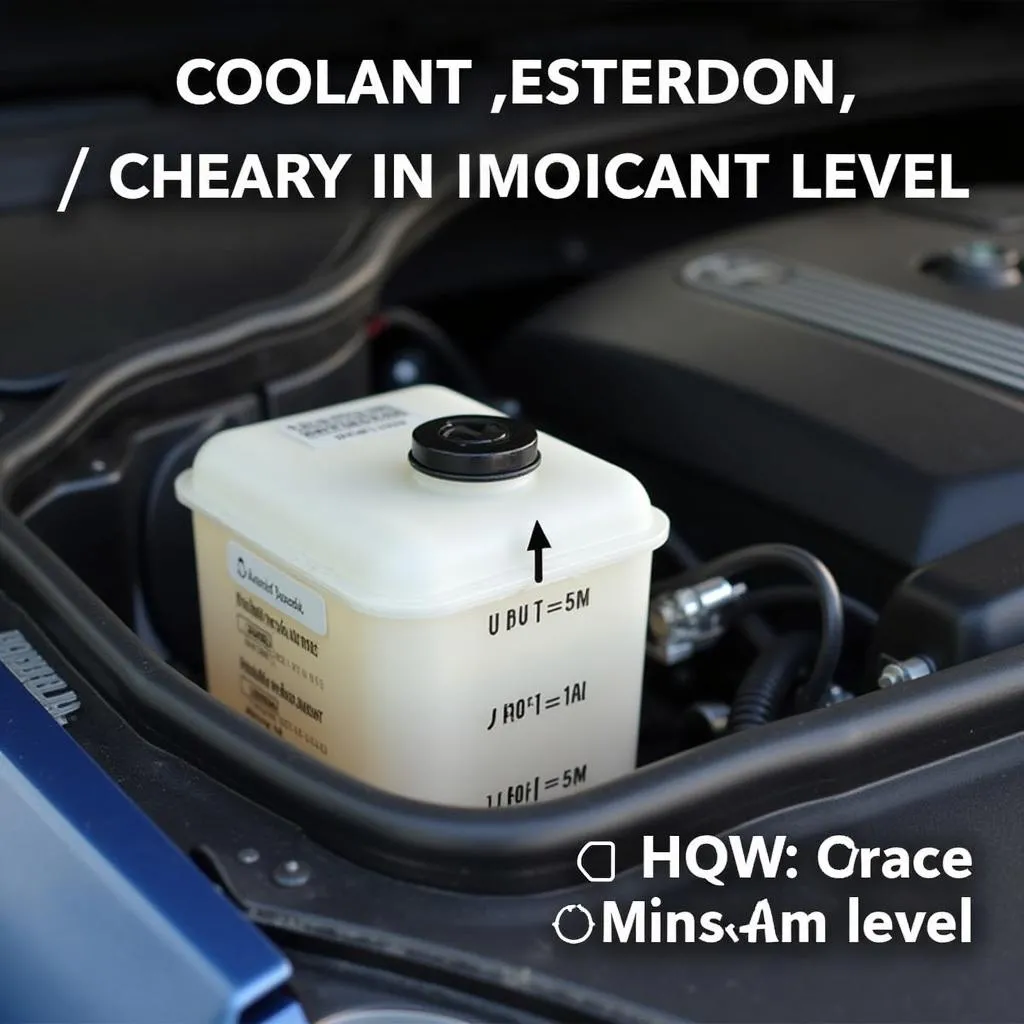BMW Coolant Temperature: What You Need to Know
Imagine this: you’re cruising down the Pacific Coast Highway in your sleek BMW, the California sun warming your face. Suddenly, a red warning light flashes on your dashboard – the dreaded temperature gauge. Your heart sinks. Is your engine overheating? Understanding your BMW’s coolant temperature is crucial to avoid those roadside breakdowns and costly repairs.
Decoding the Significance of BMW Coolant Temperature
The term “Bmw Coolant Temperature” might sound like jargon straight from a mechanic’s manual, but it holds significant meaning for both seasoned mechanics and everyday BMW drivers. Let’s break it down:
From a Mechanic’s Perspective:
For experts like John Miller, a seasoned BMW mechanic in Munich, “Monitoring coolant temperature is like taking your car’s pulse. It’s the first line of defense against catastrophic engine failure.” The coolant temperature directly reflects the engine’s internal temperature. Too hot, and vital components can warp, leading to expensive repairs or even engine replacement.
Understanding the Technicalities:
Your BMW’s engine is a marvel of engineering, but it generates immense heat. The cooling system, with its network of hoses, pumps, and that vital fluid – the coolant – ensures the engine operates within a safe temperature range. This intricate system relies on sensors to constantly monitor the coolant temperature, alerting you if things get too hot.
The Economic Impact:
Ignoring coolant temperature issues is a recipe for financial disaster. As Sarah Thompson, author of “The Savvy BMW Owner’s Guide,” puts it, “A few degrees above normal might seem insignificant, but it can lead to warped cylinder heads, blown head gaskets, and a hefty repair bill.” Regular maintenance and addressing coolant-related problems promptly can save you thousands in the long run.
Getting to the Heart of the Matter: What’s Normal, What’s Not?
Most BMWs operate within a coolant temperature range of 190°F to 220°F (88°C to 104°C). This range ensures optimal engine performance and fuel efficiency.
 BMW Coolant Temperature Gauge
BMW Coolant Temperature Gauge
However, several factors can cause fluctuations outside this ideal range:
- Faulty Thermostat: A stuck thermostat can prevent the coolant from circulating properly, leading to overheating or poor engine warm-up.
- Coolant Leaks: A leak in the system, whether from a hose, radiator, or water pump, can cause a drop in coolant level and lead to overheating.
- Malfunctioning Water Pump: The water pump is responsible for circulating coolant throughout the engine. A failing pump can disrupt this flow, resulting in temperature spikes.
- Clogged Radiator: Over time, debris and sediment can build up in the radiator, hindering its ability to dissipate heat effectively.
Recognizing the Warning Signs
Your BMW is equipped with a dashboard warning light that illuminates if the coolant temperature exceeds a safe threshold. However, it’s crucial to be proactive and not solely rely on this warning.
Here are some telltale signs that your BMW might be experiencing coolant temperature issues:
- Temperature Gauge Spikes: If the needle on your temperature gauge frequently rises above the normal range, it’s time to investigate.
- Sweet Smell Inside the Cabin: A sweet, syrupy odor coming from the vents could indicate a coolant leak.
- White Smoke from the Exhaust: While some white smoke on startup is normal, excessive white smoke, especially when the engine is warm, could signify a coolant leak into the combustion chamber.
- Low Coolant Level: Regularly check your coolant reservoir. A consistently low level indicates a leak that needs immediate attention.
Taking Action: How to Address Coolant Temperature Problems
Suspect your BMW might have a coolant temperature issue? Don’t panic! Here’s what you can do:
- Pull Over Safely: If you notice the temperature gauge rising rapidly or see steam coming from under the hood, safely pull over as soon as possible and turn off the engine.
- Check the Coolant Level: Once the engine has cooled down, carefully inspect the coolant reservoir. If it’s low, adding coolant might temporarily resolve the issue. However, it’s crucial to identify and fix the underlying leak.
- Seek Professional Help: For anything beyond topping off the coolant, it’s best to seek professional help. A qualified BMW mechanic can diagnose the problem accurately and recommend the appropriate repairs.
 BMW Mechanic Inspecting Engine
BMW Mechanic Inspecting Engine
Don’t Get Caught Off Guard: Proactive Maintenance is Key
Preventing coolant temperature problems is always better than dealing with the consequences.
Here are some proactive measures you can take:
- Regular Coolant Flushes: Consult your BMW’s owner’s manual for the recommended coolant flush intervals. Flushing the system removes contaminants and ensures optimal cooling system performance.
- Inspect Hoses and Belts: Regularly inspect the coolant hoses for signs of cracks, bulges, or leaks. Check the condition of the belts that drive the water pump and replace them if they show wear and tear.
- Address Leaks Promptly: Ignoring even minor leaks can lead to bigger problems down the road. If you suspect a leak, have it addressed by a professional as soon as possible.
Exploring Related Concerns: Common Questions About BMW Coolant Temperature
- Can I use any coolant in my BMW? No, it’s crucial to use the BMW-approved coolant type and concentration specified in your owner’s manual. Using the wrong coolant can damage the cooling system and void your warranty.
- Why is my BMW losing coolant but there’s no visible leak? This could indicate a leak within the system, such as a leaking heater core or a blown head gasket, which requires professional diagnosis.
- How often should I check my coolant level? It’s a good practice to check your coolant level at least once a month and before any long trips.
 BMW Coolant Reservoir
BMW Coolant Reservoir
Need Expert Advice? We’re Here to Help!
Dealing with coolant temperature issues can be daunting, but you don’t have to navigate it alone. At Car Diag Xpert, we offer specialized knowledge and support to help you keep your BMW running smoothly. Contact us on WhatsApp at +84767531508 for expert advice, troubleshooting tips, and assistance with all your BMW diagnostic needs. Our team of automotive specialists is available 24/7 to provide you with the guidance you need.
Don’t let coolant temperature worries put a damper on your next drive. By understanding the importance of maintaining your BMW’s cooling system, recognizing the warning signs, and taking proactive steps, you can ensure miles of worry-free driving pleasure.
Looking for more helpful tips and in-depth guides on BMW maintenance and diagnostics? Check out our related articles:
- Overheating: Normal Car Temperature Gauge
- BMW E90 2EF8 Thermostat Test
- BMW Thermostat: A Comprehensive Guide
- Understanding the BMW GP3
- 2006 BMW 325i Coolant Hose Diagram
We’re passionate about helping BMW owners like you keep their cars in top condition. Have a question we didn’t cover? Leave a comment below, and we’ll be happy to help!
